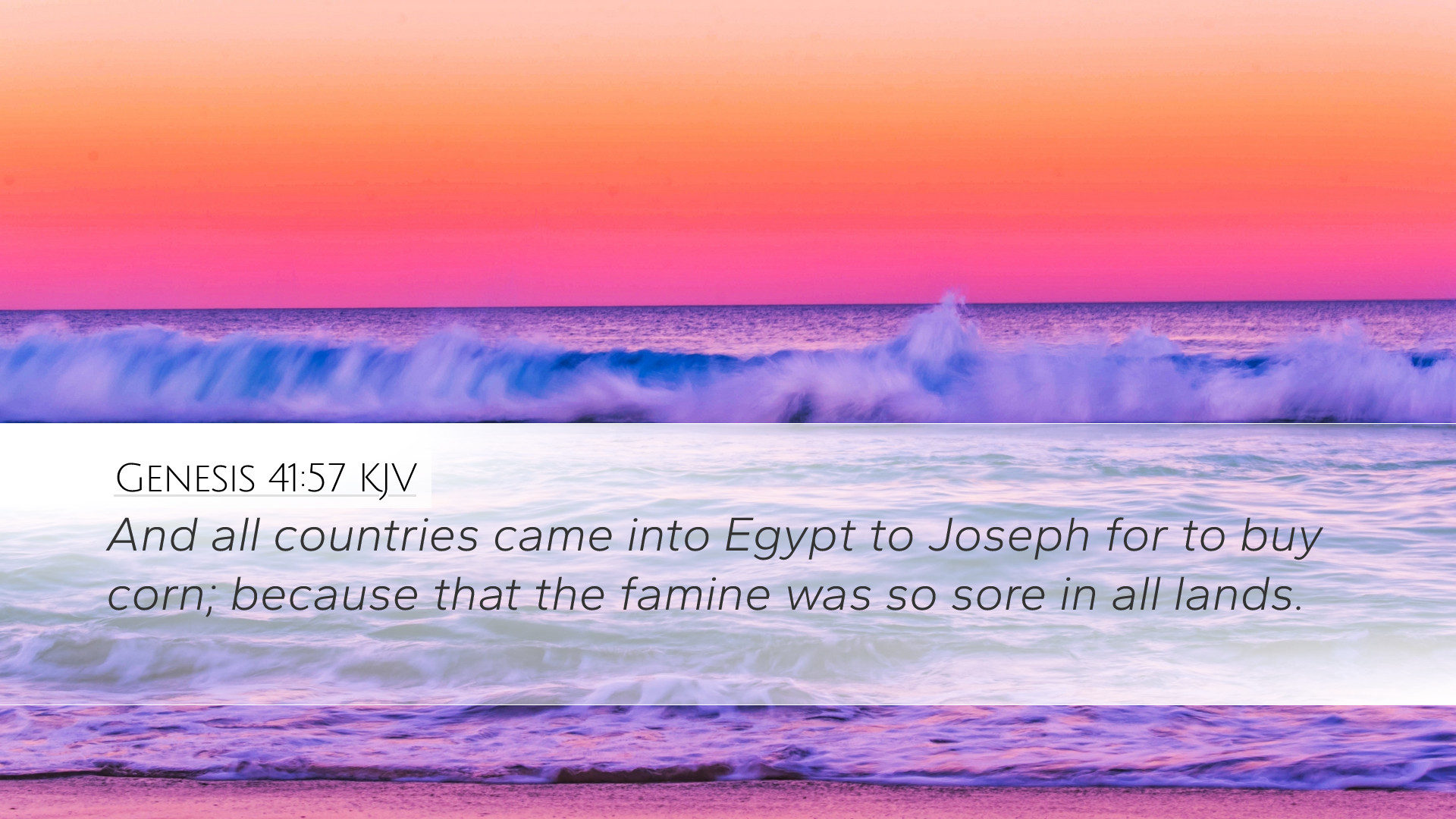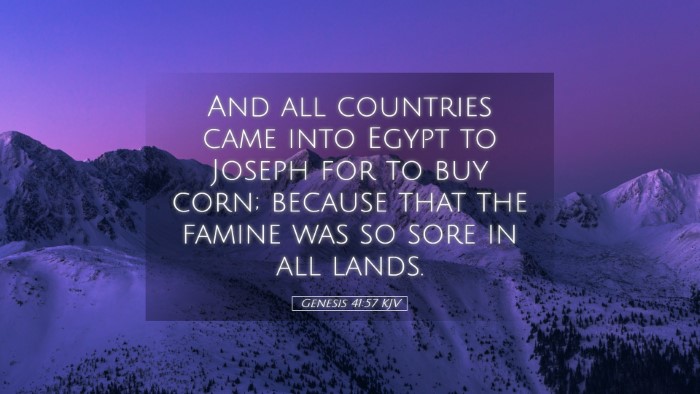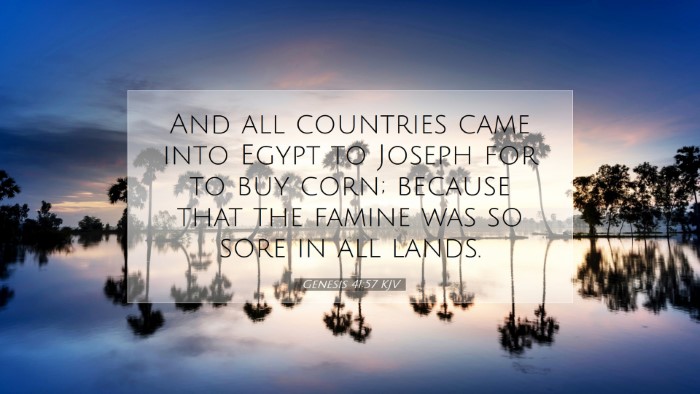Commentary on Genesis 41:57
Verse: And all countries came into Egypt to Joseph to buy corn; because that the famine was so sore in all lands.
Introduction
This verse marks a significant moment in the story of Joseph, illustrating the impact of the divinely orchestrated famine and Joseph's role as a savior figure during a time of crisis. In the context of biblical history, this passage opens a window into God's providence, the principle of stewardship, and the interconnectedness of nations in distress.
Contextual Background
The narrative leading up to Genesis 41:57 sets the stage for understanding Joseph's rise in Egypt, notably from a prisoner to the second-in-command of the land. Joseph interpreted Pharaoh's dreams, revealing the forthcoming years of plenty and famine, which led him to devise a plan for storing grain. The successful implementation of this plan not only saved Egypt but also attracted people from various nations during the years of famine.
Theological Insights
- Divine Providence: This verse highlights God's sovereignty in orchestrating events for a larger purpose. While famine caused suffering, it also directed nations to Joseph, who acted according to divine wisdom. Matthew Henry emphasizes the idea that God guides the affairs of man to fulfill His ultimate plan.
- Human Responsibility: Joseph's proactive approach demonstrates that while God is sovereign, He also calls individuals to action. Adam Clarke notes that Joseph did not merely wait for the years of famine to play out; he took systematic steps to prepare, showcasing the balance between divine providence and human diligence.
- Universal Need: The fact that "all countries came into Egypt" indicates the universality of human need. Albert Barnes highlights that the famine knew no boundaries, compelling all nations to seek help, thus reinforcing the idea that in times of crisis, people often find common ground, transcending national and personal divides.
Implications for Leadership
Joseph's leadership during the famine provides rich lessons for contemporary pastors, students of theology, and leaders in various spheres:
- Visionary Leadership: Joseph demonstrated foresight that enabled him to prepare Egypt for future needs. Christian leaders today are called to have a vision and plan for future challenges in their communities.
- Compassionate Outreach: The migration of nations to Egypt underscores the importance of a compassionate response during crises. The church today is called to be a sanctuary, providing both spiritual and practical assistance to those in need.
Social and Cultural Significance
The influx of people into Egypt due to famine highlights the socio-economic dynamics of the ancient world. During crises, nations often band together, and resources become crucial. Matthew Henry points out that Joseph's actions led to Egypt becoming a central hub for survival during a time of need, showcasing the importance of altruism in society.
Moral and Ethical Considerations
This passage encourages reflection on the ethics of stewardship. Joseph's management of Egypt's resources raises questions about how modern leaders utilize their resources in times of need. Adam Clarke suggests that the integrity shown by Joseph in handling grain provides a precept for ethical practices in leadership today.
Conclusion
Genesis 41:57 serves as a poignant reminder of God's providence, the importance of human intervention, and the lessons in leadership and ethical stewardship amid crisis. For pastors, theologians, and scholars, this passage encourages a deeper exploration of how to apply biblical principles of preparation, compassion, and responsibility in today's world.


